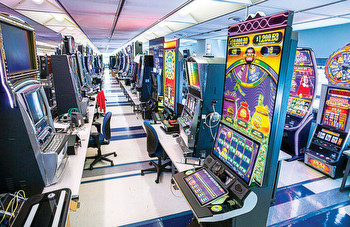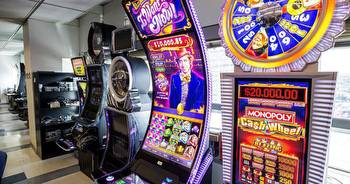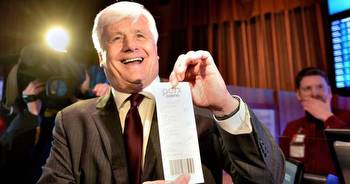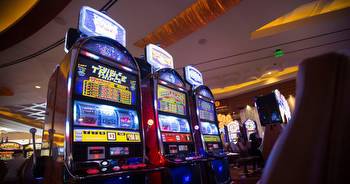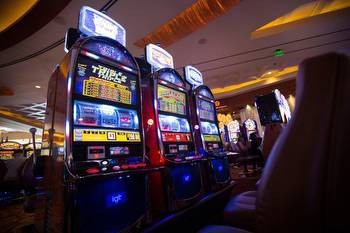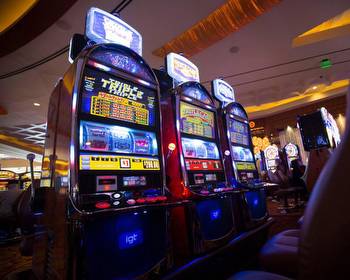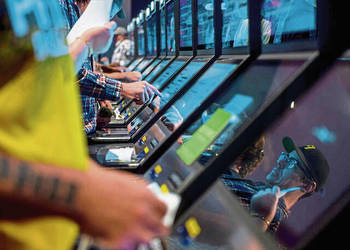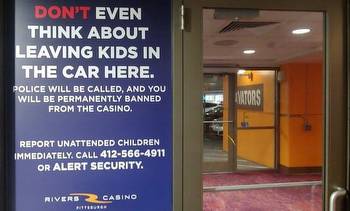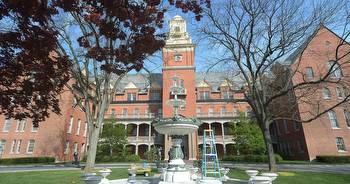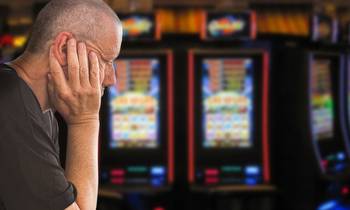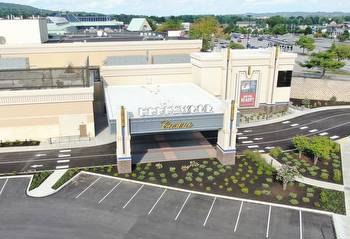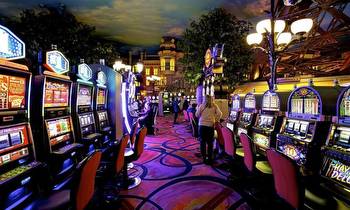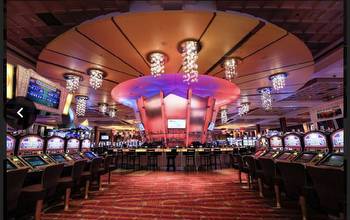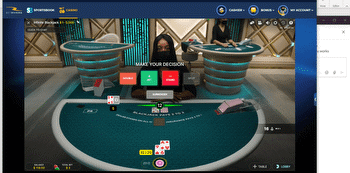Pa.'s casino games testing lab ensures fair play is no roll of the dice
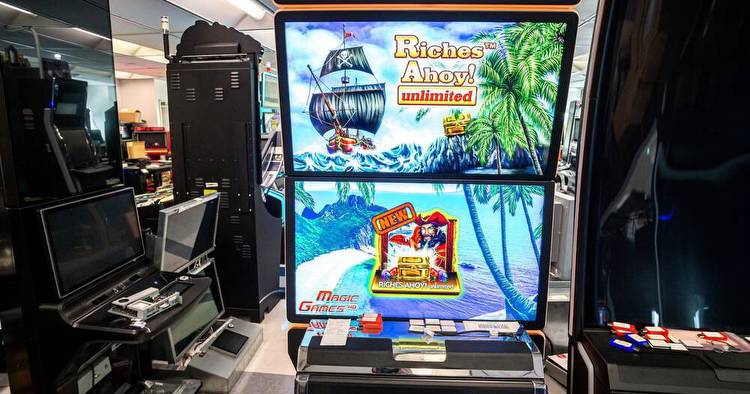
Tucked away on a top floor of a Harrisburg office building – behind three locked doors – is a secret casino of sorts. Only a handful of people can play there.
You can find one of every game and related equipment in operation at Pennsylvania casinos there, but the machines are usually silenced, and the payout is money they can’t keep.
It’s the testing lab of the Pennsylvania Gaming Control Board.
This is where all games and equipment go to receive the board’s stamp of approval to make sure they meet the state’s player fairness and gaming integrity rules.
Most of the 16 people employed by the Bureau of Gaming Laboratories in Strawberry Square spend their days checking out the behind-the-scenes math and engineering of slot machines, table games, sports wagering, VGTS, iGaming, card shufflers and player ticket redemption kiosks, among others.
“The main purpose of all this in here is to test to make sure all the equipment is meeting all the laws, regulations, the technical standards,” said Heather Worner, director of the gaming lab, standing in the crowded room where machines, some disassembled, some intact, sit in rows similar to a casino floor without the chairs or fancy décor.
All of the equipment and gaming software in the lab is on permanent loan from the manufacturer, along with equipment needed to test them.
So if a problem arises with a machine or the software, the statisticians and engineers can troubleshoot it in the lab by replicating the problem and figuring out a solution without having to travel to the place where the issue occurred.
“If a game maker becomes aware of a problem, they need to tell us as soon as they know,” said Charlie Leister, gaming lab manager of the statistician group. “Sometimes, there might be a bug discovered in another state and when they find out about that, they send information to everyone they sold it to. They can’t knowingly be operating anything that has an issue.”
But that doesn’t happen very often, he added.
Most of the lab employees’ time is spent approving new games.
This year, they are averaging 130 new game submissions a month. In all of last year, Mark Dinse, gaming lab manager for the engineering group, said they gave 1,800 approvals.
A majority of the funding to operate the gaming lab is borne by the game manufacturers, said gaming control board spokesman Doug Harbach. They reimburse the agency for employees’ time spent working on their equipment. He said casinos pick up the remaining cost of running the agency.
What happens in the lab stays in the lab
Everything about casino games and equipment is proprietary and held close to the vest by the lab’s employees, who test every aspect of what makes the machines work and how they operate.
The approval process begins with a review of the math behind a game to ensure it abides by the state’s rules, such as making sure its theoretical payback falls between 85% and 100%. Leister explains that doesn’t mean a player should get 85 cents back for every dollar put into a machine but rather in the long run, that 85% of the bets pay if placed over millions of spins.
“It has to be below 100% because if it was more than that we wouldn’t be making money for the state,” Leister said.
In the last fiscal year, the state’s cut of slots and table gaming revenues averaged more than $3.8 million a day – more than $1.4 billion for the year, according to the gaming control board’s annual report.
The lab also studies the math behind the games to make sure it meets the state’s gaming integrity rules. For example, the lab’s staff ensures the probability of winning falls within the state regulations of one in 50 million.
“That’s basically to ensure that they are not showing you a huge prize that is essentially unwinnable,” Leister said.
While that might seem like steep odds, Mark Dinse, gaming lab manager for the engineering group, said it is almost six times better than the probability of winning a Powerball jackpot, which is 1 in nearly 300 million.
Next, the games go to Dinse’s engineering group. There, the team essentially makes sure what is on paper about a game aligns with what actually happens when the game is played. For example, if the math model says a slot machine spin that shows three sevens pays $100, the engineering team makes sure it actually pays $100.
They make sure the outcome is always random and check that it has responsible game playing protections so as not to encourage players to play more in their quest for a big payout. Among other things, they review the information on machines’ help screen to be sure it is accurate and not misleading.
“We can’t trust anything,” Leister said. “We have to scrutinize everything.”
Games or equipment that don’t meet the state’s standards are not allowed in the state’s casinos.
Another more important job the lab performs is ensuring the game software connects to the central computer system that tracks the revenue from the 27,000 games available for play in the state.
Two-thirds of the revenue generated through casino and online slots gaming is returned for general property tax reduction and, in Philadelphia, wage tax reduction, Harbach said. Gaming revenue also supports the state’s horse racing industry.
Innovation keeps the work interesting
Most of this work the lab performs is done in-house but some of it, the more tedious aspects of game reviews, is farmed out to a state-vetted independent testing lab. Leister said that leaves the lab’s staff able to focus on nuances in games that fall into any gray areas of the state regulations that were written nearly two decades ago.
“We’re constantly seeing new innovations in the industry that weren’t foreseen when our regulations were made so long ago,” he said. “Back then, it was like three spinning wheels. Now it’s a lot more crazy. So we’re constantly having to balance not stifling innovation but also upholding our regulations and finding a way to shepherd games through to maintain patron friendliness and gaming integrity.”
Is it fun to work in the lab testing the casino games?
“It can be exciting I suppose,” Leister said. “It keeps you on your toes. It’s not the same old thing. [Manufacturers] are always trying to get the latest and the greatest and more challenging.”
Dinse said when he tells people where he works, some confuse his job with the Pennsylvania Game Commission. He explains, as a gaming control board employee, he deals with casino games, not animals. They often ask him if he gets to play the games.
“I say if want to,” he said. “The thing that excites me are the new game designs, the fancy graphics, the lights. It’s like ooh, this is interesting concept. It’s the dorky things.”
Gaming control board employees are barred from playing any game that is licensed in Pennsylvania at a casino anywhere in the world, so their game play is limited to the lab.
Dinse, Leister and Worner said that suits them just fine.
The only appeal of playing the games for Worner is if she happens to be somewhere that offers a game that has a new innovation that the lab hasn’t yet seen. Then, she said, “it’s for research purposes.”
Finding out they spend days working with casino games inevitably leads people to ask: What are the tricks to winning.
Dinse said this is the advice he offers: “I say just go in with a set amount of money and have fun because you’re not guaranteed to win – and don’t chase your losses.”








